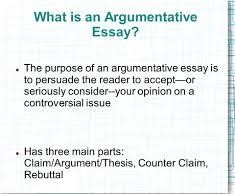Lesson Notes By Weeks and Term - Primary 6
Grammar: Verbs: Definition and types Structure: Mastering of passive voice Construction: change active sentences into Passive voice writing: Argumentative essay: A teacher is more Important than a farmer
Grammar: Verbs: Definition and types Structure: Mastering of passive voice Construction: change active sentences into Passive voice writing: Argumentative essay: A teacher is more Important than a farmer
WEEK: Five
CLASS: Basic six
SUBJECT: English Language
TERM: 1st Term
TOPIC: Grammar: Verbs: Definition and types Structure: Mastering of passive voice Construction:
change active sentences into Passive voice writing: Argumentative essay: A teacher is more Important than a farmer
BEHAVIOURAL OBJECTIVES: At the end of the lesson, pupils should be able to:
i. Define verbs and mention types ii. Change active sentences to passive voice iii. Write an argumentative essay
BUILDING A BACKGROUND: Pupils are familiar with verbs and essays
INSTRUCTIONAL MATERIAL: Pictures, charts and textbook
REFERENCE MATERIAL: Nigeria Primary English Pupils’Book to
CONTENT:
VERBS AND TYPES
A verb is an action word or a doing word.
There are three types of verbs. They are:
STRUCTURE
When X (doer) does something to Y (receiver), there are usually two ways to talk about it: “active voice” and “passive voice”. We use active verbs if we want X to be subject. We use the passive verb if we want Y to be the subject. In the example below in the active construction, “ Osaro” is the doer and it is also the subject of the sentence. However, in passive sentence, “a car” is the receiver of the action, but it is the subject of the sentence.
EXAMPLES:
Active voice Passive voice
Titi sang a song. A song was sung by Titi.
The pupil kicked the ball. The ball was kicked by the pupil.
Did Musa write this letter? Was this letter written by Musa? Someone else did that. That was done by someone else.
WRITING

EVALUATION: Pupils are evaluated thus:
Example: Chinua Achebe/Things Fall Apart (write) Answer: Things Fall Apart was written by Chinua Achebe.
© Lesson Notes All Rights Reserved 2023